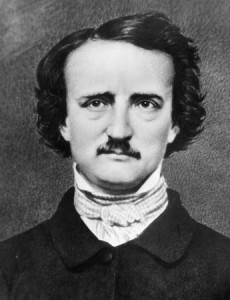 As a young man in search of the artist within, I loved to read the letters and notebooks of accomplished writers. Also as a young man, as seemed my responsibility, I worshipped at the altar of Albert Camus and his books The Stranger and The Fall. His notebooks were also a great read and I pored over them.
As a young man in search of the artist within, I loved to read the letters and notebooks of accomplished writers. Also as a young man, as seemed my responsibility, I worshipped at the altar of Albert Camus and his books The Stranger and The Fall. His notebooks were also a great read and I pored over them.
One entry that became cemented in my psyche was:
Poe’s four conditions for happiness-
Love of another human being.
Freedom from all ambition.
Creation.
These four simple lines formed the basis of my belief system for years to come. My issue has always been a lack of driving ambition but a love of doing. In finding these four lines I thought this inherent contradiction was laid perfectly out for me. In the reconciliation of the incongruity of the third and fourth conditions, happiness is to be found.
Many years later I came to feel that the Bhagavad Gita teaches the same essential truth in that we should not be attached to the fruits of our labors.
It wasn’t until yesterday and the beauty of internet searches that I found the original source of Poe’s four conditions for happiness. They come from a fairly obscure story of his, The Domain of Arnheim. I’ll include the paragraph from the story below which actually changes the emphasis a bit.
He admitted but four elementary principles, or more strictly, conditions of bliss. That which he considered chief was (strange to say!) the simple and purely physical one of free exercise in the open air. “The health,” he said, “attainable by other means is scarcely worth the name.” He instanced the ecstasies of the fox-hunter, and pointed to the tillers of the earth, the only people who, as a class, can be fairly considered happier than others. His second condition was the love of woman. His third, and most difficult of realization, was the contempt of ambition. His fourth was an object of unceasing pursuit; and he held that, other things being equal, the extent of attainable happiness was in proportion to the spirituality of this object.
For whatever its worth, unsurprisingly with Poe, this reflects on obsession as a means to happiness. I prefer the concept of creation to obsession. It doesn’t make these conditions for happiness less interesting to me but it is different all the same.
***
